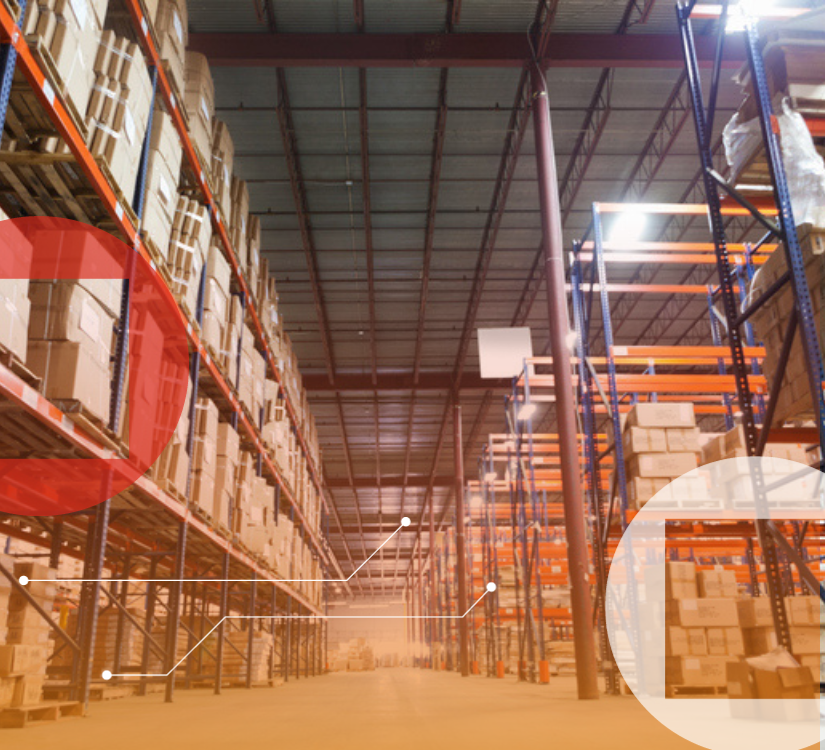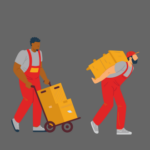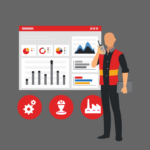
New warehouse space can be incredibly appealing. If your company is experiencing a growth spurt, the additional space provides more room to not only store more inventory but also for employees to move around more easily. Or maybe your current warehouse is just the right size, yet the building is getting older, needs a bit of work, or doesn’t have the most efficient layout.
Whatever your reason for wanting a new warehouse, here are a few factors to consider first. Paying attention to each of these can improve your ability to make the best decision possible for your company given where it is are right now, as well as supporting where it wants to be in the future.
Leasing vs. buying
Both leasing and buying have their advantages. Leasing means you aren’t locked into a space for an extended period of time, it’s cheaper than buying, and some maintenance and repair issues fall back onto the property and/or building owner.
But buying offers benefits too. Namely, you have full control over the warehouse space and you have a property that you can sell later to get some or all of your money back. That makes it a good future investment. (You can also build a new space, which would have similar considerations as buying.)
When deciding what to do, think about where you expect your company to be five, 10, or 20 years down the road. Based on this vision, which option makes the most sense?
Your budget
How much extra cash do you have to spend on a new warehouse? Is money so tight that the company is barely above water or are you in the position to invest in new warehouse space without dramatically impacting your bottom line?
The company’s budget will also play a role in whether to lease or buy. If you don’t have a lot of extra money to play with, leasing is one way to access new space without dropping a huge lump sum.
Amount of space needed
How much warehouse space do you need in terms of square footage? Also think about how much exterior space you’ll need, both for employee parking and to park or store any necessary equipment.
If you plan to have the warehouse for an extended time, consider how long the space you’re looking at will meet your needs based on current and projected growth patterns. The last thing you want to do is invest in new warehouse space only to outgrow it a short time later.
Type of space needed
It isn’t just the size of the warehouse space needed, but also how it is laid out. When checking out new warehouses, look at building shape and design. Will its layout work for your desired use?
If the layout won’t work, what are your modification options? If you’re leasing, you may be somewhat limited in what you can do. And although you may have more leeway if you buy, there’s also the additional cost of getting the space the way you want it. So, that would have to be figured in as well.
Location
Whether you’re buying, leasing, or even building an entirely new space, location matters. Is it easy for suppliers and vendors to get to your new warehouse? Will it cost more to ship or to receive your goods?
What about employees – will changing to this new location make it harder or easier for them to get to work? If a lot of your staff rely on public transportation, does the warehouse you want provide this opportunity? If not, you may lose a good deal of your workforce by making the move.
Business needs
One factor that may be easily overlooked is whether the new warehouse has what you need to run that space efficiently. Is it set up for internet or phone lines, enabling you to conduct business without having to install these things yourself? Will the way the electricity is laid out support your equipment, and your processes and functions?
Imagine operating within the new space. Picture it with as much detail as possible, including where items will be stored, where equipment will be placed, and where each worker will be assigned. The more you visualize what it is you need, the easier it will be to recognize whether the new warehouse space will (or won’t) fit your needs.
SIMOS can help with more than just staffing. We can also help work through process changes and warehouse space optimization. Contact our team to see how to get started.



